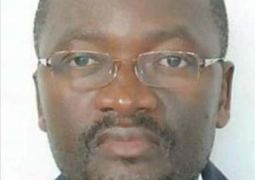
Head of
mission of the International Monetary Fund (IMF) in The Gambia has disclosed
that Gambia has advanced a request to execute a three year programme. The
programme could be supported by an Extended Credit Facility (ECF) arrangement
in the amount of US$48 million.
Jaroslaw
Wieczorek made these remarks at a joint press confab convened with the Finance
Ministry on Tuesday.
He said Gross
Domestic Product (GDP) growth in 2019 is estimated to reach 6% despite the
temporary drop in tourist arrivals in November 2019, following the bankruptcy
of Thomas Cook (UK) and a much lower agricultural output due to erratic
rainfall.
“This strong
performance reflected Gambia’s gaining competitiveness as a tourist
destination, strong private sector consumption and investment supported by
foreign exchange inflows, greater availability of credit, and a much improved
reliability of electricity and water supply,” he added.
According to
him, over the medium term, sound macro-economic policies will underpin the prospects
for sustained growth; the strengthening of foreign exchange buffers and
inflation moderating from an average of 7.1% in 2019 to the Central Bank of The
Gambia’s target of 5%.
Mr. Wieczorek
said the public debt to GDP ratio declined from nearly 87% of GDP in 2018 to
around 81% in 2019.
The Gambia’s
2020 budget, approved in December 2019, he said, is aligned with IMF staff’s
projections, adding that it aims to stabilise the domestic public debt,
building on a continued strong domestic revenue performance and appropriate tax
policy measures, with additional resources channeled toward public investment
and social spending.
He observed
that The Gambia’s performance under the 2019 SMP has been strong, noting that
quantitative targets including domestic borrowing by the government and poverty
reducing spending were met.
“The
implementation of the 2019 budget was accompanied by strong tax revenue effort,
improved expenditure control and debt management. The country is making
concerted efforts to bridge governance gaps, tackle the vulnerability to
corruption and take concrete actions to prosecute human traffickers. The works
of the Janneh Commission and the Truth, Reconciliation and Reparations
Commission have been particularly laudable, helping to identify past
corruption, laying the basis for asset recovery and dispensing justice to the
victims of the previous regime. The draft Anti Corruption Bill, recently
submitted to the National Assembly, is expected to increase efficiency in
tackling corruption”.
Wieczorek
maintained that The Gambia’s debt outlook enabled it to exit from debt
distress. Nonetheless, he added that great care is needed to avoid contracting
any new non-concessional debt, given the high level of the public debt and the
large existing pipeline of the already contracted project loans.
He explained
that the Extended Credit Facility (ECF) arrangement will catalyze the
much-needed resources from other international partners and enable The Gambia
to fulfill its economic potential, address pressing social needs and build on
the structural reform agenda of the 2019 SMP.
“Further
efforts will be needed to strengthen revenue mobilisation, public financial
management and the governance of state owned enterprises, while improving
public investment and procurement processes.”



